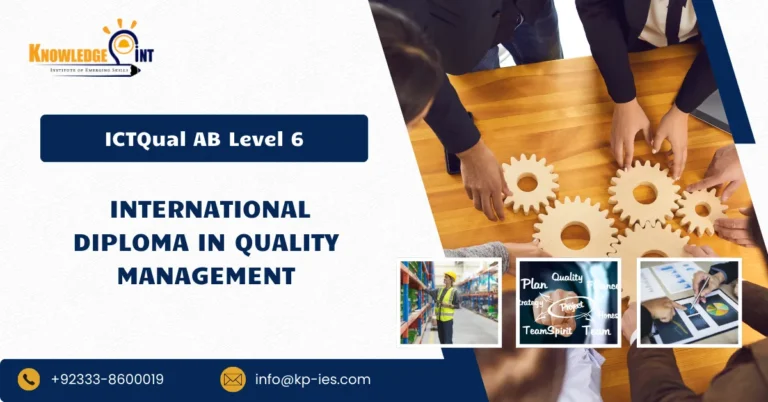ICTQual AB Level 6 International Diploma
Medical Laboratory Technology
Awarding Body
ICTQual AB
Credits
360 Credits
Course
Healthcare
study mode
Online Learning
Course overview
The ICTQual AB Level 6 International Diploma in Medical Laboratory Technology is designed for healthcare professionals and aspiring laboratory technologists seeking advanced knowledge and practical expertise in medical laboratory sciences. The programme provides a comprehensive understanding of diagnostic techniques, laboratory equipment, and clinical testing procedures. It equips learners to work confidently in hospitals, diagnostic centres, research laboratories, and public health institutions while adhering to international standards of quality control, safety, and regulatory compliance.
Throughout the course, learners develop strong analytical, problem-solving, and decision-making skills essential for modern laboratory practice. Key areas of study include clinical biochemistry, haematology, microbiology, immunology, molecular diagnostics, laboratory management, and quality assurance. The programme also emphasizes laboratory safety, accurate data interpretation, research methodologies, and the use of modern laboratory technologies to deliver reliable diagnostic results and support evidence-based healthcare decisions.
This diploma is ideal for medical laboratory technologists, laboratory assistants, healthcare practitioners, and professionals seeking career progression in clinical, research, or public health laboratory settings. Graduates gain the competence to conduct complex diagnostic tests, analyse patient samples, ensure compliance with regulatory standards, and contribute to medical research and innovation. The Level 6 qualification also supports progression to higher education, professional certifications, and senior technical, research, or managerial roles within the global healthcare and laboratory technology sector.

Approved Training centre of ICTQual AB
Centre # : ATC24001

Entry Requirments
Entry Requirements for the ICTQual AB Level 6 International Diploma in Medical Laboratory Technology:
- Educational Qualifications:High school diploma or equivalent, preferably with a background in biology, chemistry, or life sciences.
- Professional Experience:Relevant healthcare or laboratory experience is recommended; fresh candidates may enroll with full coursework completion.
- English Language Proficiency:Since the program is delivered in English, learners must show competence in reading, writing, and communication.
Course structure
ICTQual AB Level 6 International Diploma in Medical Laboratory Technology in Personal Protective Equipment qualification consists of 36 mandatory units.





